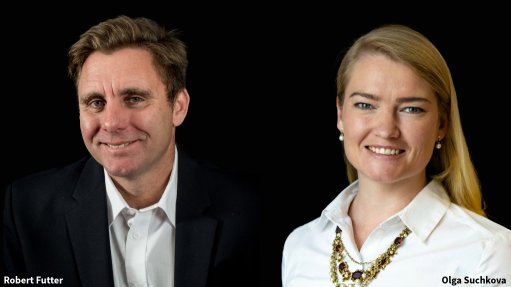Investments in business controls result in shift in economic crime detection
Investments made to detect fraud and corruption have resulted in more of these economic crimes being detected by corporate controls and oversight mechanisms, corporate services multinational PwC Forensic Services partner Trevor White says.
Detailing the findings for South Africa of the multinational’s global economic crime and fraud survey, he adds that 44% of corporate companies in South Africa have increased spending to combat fraud and economic crimes since the 2016 survey, and a further 46% planned to increase this over the next 24 months.
The rate of economic crime detected by corporate controls increased by 7% to 51% of all crimes uncovered, while the detection of economic crime by controls and people beyond management’s control decreased by 17% to 19% of all crimes discovered.
Economic crimes detected by corporate culture, which makes use of internal tip-off processes and whistle blowing mechanisms, increased by 11% to 30% of overall detections.
Of the 282 South African respondents, of which more than 55% were C-suite executives and 11% were from government, 64% say they actively monitor whistle- blower lines to ensure the effectiveness of their compliance and governance processes. This represents a 9% increase since 2016.
It appears that the environments within organisations have become more receptive to trusting internal tip-off processes, as seen by the upsurge in the detection of fraud by means of internal tip-offs to 14%, compared with 6% in 2016, says White.
“Our findings indicate a shift in thinking, whereby 18% of organisations are making use of fraud risk management – more than twice the instances noted in 2016 – and data analytics to detect criminal activity.”
Companies are becoming less inclined to leave the detection of fraud to chance and have taken a decisive stance to actively combat economic crime, says White.
“Almost three-quarters (73%) of South African respondents conducted general fraud risk assessments of their own volition – a sign that our hypothesis regarding organisational awareness is sound,” he adds.
The size and complexity of many economic crimes, especially the most disruptive incidents, have led to a change in the methods of detection and forensic investigations, such as those carried out by PwC, says PwC South Africa Forensic Services lead partner Trevor Hills.
“Data analytics is becoming a bigger part of our methods and our [Forensic Services] team’s growth was mainly [in the fields of] data scientists and data analysts.”
Similarly, data analytics forms a growing part of the corporate controls deployed to detect and prevent fraud, and constitutes 6% of the 51% of overall fraud incidents detected, confirms White.
Companies in emerging markets, including South Africa, are investing in advanced technologies, such as artificial intelligence, at a faster rate than companies in developed nations, and the use of innovative technologies to combat fraud is now a worldwide phenomenon, he says.
“The reason companies are investing more funds in fraud and economic crime detection systems is to prevent them from happening. Our survey underscores that the cost of fraud and of its aftermath is substantial,” he adds.
The greatest impact of economic crime is the effect on employee morale. Complex economic crimes that cross jurisdictions and involve the clever use of methods and technologies to hide the crimes require a team of skilled people to investigate.
Additionally, the impact on business relations, customer relations and brand damage as a result of economic crime means that investment in the detection and prevention of these activities makes business sense.
Companies are increasingly expected to act ethically. To this end, extraterritorial laws, such as the US Foreign Corrupt Practices Act and the UK Bribery Act, are adding to the pressures on multinationals to conduct business ethically regardless of the jurisdiction they operate in.
Comments
Press Office
Announcements
What's On
Subscribe to improve your user experience...
Option 1 (equivalent of R125 a month):
Receive a weekly copy of Creamer Media's Engineering News & Mining Weekly magazine
(print copy for those in South Africa and e-magazine for those outside of South Africa)
Receive daily email newsletters
Access to full search results
Access archive of magazine back copies
Access to Projects in Progress
Access to ONE Research Report of your choice in PDF format
Option 2 (equivalent of R375 a month):
All benefits from Option 1
PLUS
Access to Creamer Media's Research Channel Africa for ALL Research Reports, in PDF format, on various industrial and mining sectors
including Electricity; Water; Energy Transition; Hydrogen; Roads, Rail and Ports; Coal; Gold; Platinum; Battery Metals; etc.
Already a subscriber?
Forgotten your password?
Receive weekly copy of Creamer Media's Engineering News & Mining Weekly magazine (print copy for those in South Africa and e-magazine for those outside of South Africa)
➕
Recieve daily email newsletters
➕
Access to full search results
➕
Access archive of magazine back copies
➕
Access to Projects in Progress
➕
Access to ONE Research Report of your choice in PDF format
RESEARCH CHANNEL AFRICA
R4500 (equivalent of R375 a month)
SUBSCRIBEAll benefits from Option 1
➕
Access to Creamer Media's Research Channel Africa for ALL Research Reports on various industrial and mining sectors, in PDF format, including on:
Electricity
➕
Water
➕
Energy Transition
➕
Hydrogen
➕
Roads, Rail and Ports
➕
Coal
➕
Gold
➕
Platinum
➕
Battery Metals
➕
etc.
Receive all benefits from Option 1 or Option 2 delivered to numerous people at your company
➕
Multiple User names and Passwords for simultaneous log-ins
➕
Intranet integration access to all in your organisation
















